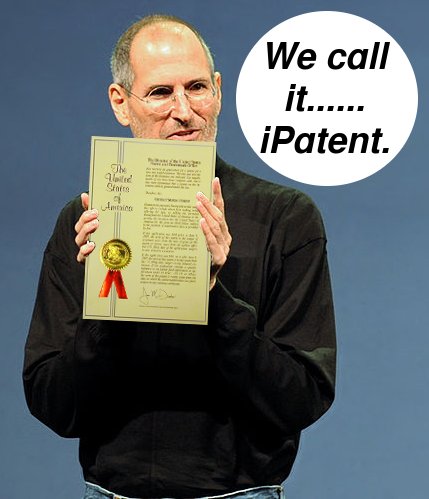

Original photo by Matt Buchanan; edited by Techrights
PATENTS are not an ethical thing in general, but their original intent was a positive one. The patent system was created to protect the small guy/girl (the "inventor") from the big companies. That's at least part of the story. Nowadays, the patent system does exactly the opposite thing by crushing the small guy/girl (unless it's a patent troll and a parasite) and the funny thing is that public money is being used to fund this injustice.
Why Does The US Gov't Get To Patent Research Paid For By Public Tax Dollars?
An anonymous reader links us to a report from The National Institute of Standards and Technology (NIST), which came out earlier this year, that highlights how, in 2008, the US government brought in $170 million (pdf) by licensing federally (i.e., taxpayer-funded) technology and patents to private companies.
The court stated, “The ’516 patent discloses no working or even prophetic examples of methods that reduce NF-kB activity, and no completed synthesis of any of the molecules prophesized to be capable of reducing NF-kB activity”
With so much focus on "cloud computing" these days, companies looking to leap into the cloud and to embrace the agility and flexibility it provides are being warned that there may be a looming problem on the horizon: patent litigation. Seriously. As with pretty much any hot area of technology these days, there's a pretty big patent thicket around cloud computing -- even if the basic technology really isn't all that different than what's been around for ages. But, of course, that won't stop opportunistic companies from claiming their patents cover new cloud services (or of having some players in the field attack competitors with patents).
In 1999, a company called NetAirus Technologies applied for a patent on a “wireless handset communication system,” and though laughably broad, the United States Patent and Trademark Office granted it in 2006. Now, four years later, the company is using it to come after Apple (AAPL). On Friday, NetAirus filed suit against Apple, alleging that the iPhone–as a concept–infringes on its intellectual property.
[..]
How a patent so overly board could have made it through the USPTO is beyond me.
Maxwell's comments aside, I know that I personally contacted Theora's handlers (Xiph.org) at multiple points on Friday about the alleged patent issue and did not receive the courtesy of any response from them. If Apple or other patent holder had a similar experience, perhaps they have been contacted and Maxwell just doesn't know about it (yet).
Frankly I'm not surprised that a patent pool is being assembled against Theora at this time. As a Theora user myself (Firefox 3.6 !!) I've seen how good the codec is which makes it a potential threat to the patent holders. Good technology unfortunately always seems to be at risk from those who think that their intellectual property is being infringed upon.
That said, I would hope that one of the various open source patent commons can step up and help out Theora with some defensive patents and/or legal assistance. The great thing about open source is that the code is open, so if someone does come forward and show a patent claim (legitimate or otherwise), there is always an opportunity to code around it.
Comments
mcinsand
2010-05-07 17:04:28
Not quite. The patent system was created as a social deal with an inventor back in a time when technology progressed much more slowly. The concept was to grant a *temporary* monopoly to an inventor in exchange for the inventor's teaching of how to best implement the invention. This advanced the informational public domain for use after the patent period expired or as food for new ideas.
However, technology moves much faster than it did in the 18th century. What was a good temporary exchange back then is more than an effective technological lifetime today... depending. Some fields might still be so mature that they move slowly, but software is not one of them. To make matters worse, we already have copyrights that should protect software, as well as a patent system that is not supposed to cover mathematical formula.
Regards, mc
Dr. Roy Schestowitz
2010-05-07 22:35:13